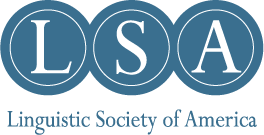Two weeks of course workshops will be followed by three weeks of practical field methods training. At CoLang, the label “Practicum” refers to an intensive study of a language with speakers and/or texts. It is equivalent to what is often called “Field Methods” in linguistics at many universities. Students must participate in the workshops in order to participate in the practica.
Each practicum consists of a three-week course based on the idea of a traditional doctoral course in field methods. It will differ from other workshop classes in being intensive, with multiple linguistic consultants per language, and will directly build off the technological skills taught in the workshops. We will offer three sections of Practica/Field Methods simultaneously, with each section working on a different language.
Prerequisites
Ideally, participants in the Field Methods course should have completed, at a minimum, one university-level course in phonetics/phonology and one university-level course in morphology/syntax, or the equivalent. It is expected that most participants will have had training beyond this level, but under some circumstances, participants without this background may be permitted to enroll. If you do not come from a linguistics background, we ask that you register for Introduction to Linguistics 1, Introduction to Linguistics 2 and Transcription during the two-week workshops.
Three field methods practica are planned for CoLang 2018:
- Tutrugbu (Nyangbo). A language of the Volta region of Ghana with approximately 6,400 speakers. Tutrugbu is one of 15 languages characterized as Central Togo (CT) and Ghana Togo Mountain (GTM) languages, because of their geographic distribution.
Meeting in Pugh 302, July 2-20. - Macuiltianguis Zapotec (MacZ). A variant of Sierra Juárez Zapotec (ISO 639-3:zaa), is an indigenous language of Mexico originating in the town of San Pablo Macuiltianguis in the state of Oaxaca, Mexico, and now spoken by significant communities in Oaxaca City, Mexico City, and greater Los Angeles, California. Meeting in Turlington 1208H, July 2-20.
- Timucua. A language once native to the North Florida region. Numerous texts from the Spanish colonial period exist and will be the basis for the practicum. This practicum will be an exercise in working with archival material and ‘sleeping’ languages. Meeting in Turlington 1208A, July 2-20.
CoLang 2018 is sponsored by the National Science Foundation (BCS-1664464), the Linguistic Society of America, and the University of Florida.

